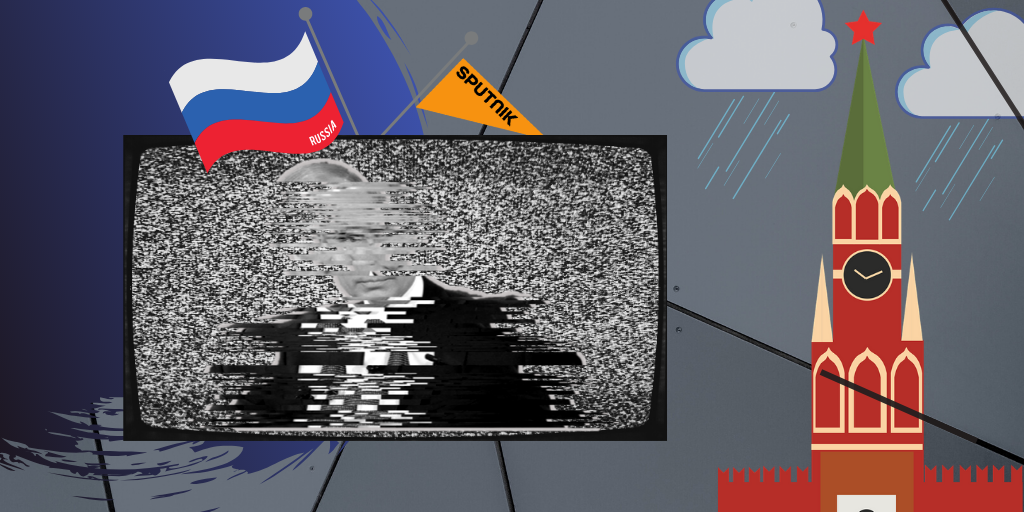
Can you win an election without digital skulduggery? the FT’s Gillian Tett asks in a must-read analysis.
As the 2019 documentary The Great Hack shows, [recent election] campaigns featured a host of dirty tricks: deliberate dissemination of misinformation; incitement to extremism; voter suppression tactics; the attempted blackmail of politicians, she writes.
“It may never be possible to have fair and free elections again [without digital reform],” says Karim Amer, co-director of The Great Hack.
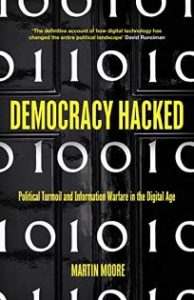 American officials, however, are nearly unanimous in the conclusion that Russia interfered in 2016, and that it remains the greatest threat in 2020. Unlike other countries, which are seen as eager to influence American policy, Russia is, above all, to be interested in undermining confidence in democratic institutions, starting with the voting process, the New York Times reports:
American officials, however, are nearly unanimous in the conclusion that Russia interfered in 2016, and that it remains the greatest threat in 2020. Unlike other countries, which are seen as eager to influence American policy, Russia is, above all, to be interested in undermining confidence in democratic institutions, starting with the voting process, the New York Times reports:
“Our adversaries, including Russia, China, Iran and others, are persistent: They focus on our politics and try to take advantage of existing fissures and American sentiment, particularly if it may weaken us,” said Shelby Pierson, who monitors election threats at the Office of the Director of National Intelligence.
“You don’t actually have to breach an election system in order to create the public impression that you have,” said Laura Rosenberger, director of the Alliance for Securing Democracy, which tracks Russian disinformation efforts. “Chaos is the point,” she added. “You can imagine many different scenarios.”
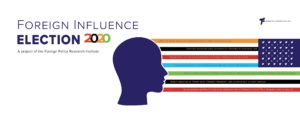 As Russia, Iran and China habitually use state media apparatuses to publish propaganda, a new FPRI project (left) seeks to understand the general thrust of such efforts.
As Russia, Iran and China habitually use state media apparatuses to publish propaganda, a new FPRI project (left) seeks to understand the general thrust of such efforts.
Russia’s disinformation efforts are also designed to create or change narratives that inform political judgments.
Creating an alternative to the dominant Western narrative about World War II, for instance, is key to Putin’s way of securing Russia’s place in the world, Bloomberg’s Leonid Bershidsky suggests:
If the Soviet Union is primarily seen as Hitler’s ally at the outset of the war — which of course it was — rather than a Hitler conqueror at its conclusion, if Russia has never really been on the right side of history, it has no claim to moral authority and to a role as a global arbiter. To Putin, that role is, in a way, as important as Russia’s nuclear shield. The ability to say authoritatively what’s right and what’s wrong is, after all, a major part of what makes the U.S. a global superpower.
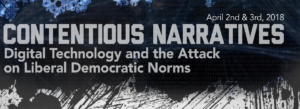 Kremlin-linked historians and propagandists see the shifting narrative as the result of Eastern Europe’s increased role in the continent as a whole, Bershidsky adds.
Kremlin-linked historians and propagandists see the shifting narrative as the result of Eastern Europe’s increased role in the continent as a whole, Bershidsky adds.
The Kremlin is determined to define itself as the sole force of resistance against fascism – now and throughout history, the EU East Stratcom Task Force observes. The Russian Ministry of Foreign Affairs implies US interests behind the Nazi war machine. Russian state TV declares that President Putin has proven that Poland started World War II. These are claims that the Kremlin expects the world to “recognise”. If not – Russia will express resentment.
Despite its initial promise, the Russian Internet (RuNet) has become a means of “ideological control,” says Russian journalist Andrei Loshak, Radio Free Europe/Radio Liberty reports:
InterNYET: A History of The Russian Internet, the award-winning seven-part series directed by Loshak for the Current Time digital and TV network, portrays the rise and fall of RuNet. From the shift of website ownership from idealistic digital pioneers to Kremlin-backed investors, the rise of troll factories and Chinese-style “pre-censorship,” the construction of a Kremlin-administered “sovereign Internet,” and the wild trajectories of Internet personalities in between, it is fundamentally a story about Russian society under President Vladimir Putin.
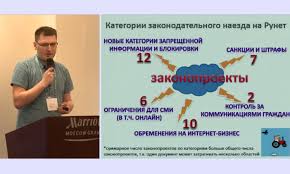 The Atlantic Council hosts a debut screening of excerpts from InterNYET, and a conversation about Russia’s Internet policy and prospects for online freedom in Russia. Jamie Fly, president of RFE/RL, and National Endowment for Democracy board member Ambassador Daniel Fried, will join Loshak to examine the latest amendments to Russia’s “Foreign Agent” law, set to take effect on February 1, and its impact on independent journalism in Russia. The discussion will be moderated by former NED Penn Kemble Fellow Melinda Haring, deputy director of the Atlantic Council’s Eurasia Center.
The Atlantic Council hosts a debut screening of excerpts from InterNYET, and a conversation about Russia’s Internet policy and prospects for online freedom in Russia. Jamie Fly, president of RFE/RL, and National Endowment for Democracy board member Ambassador Daniel Fried, will join Loshak to examine the latest amendments to Russia’s “Foreign Agent” law, set to take effect on February 1, and its impact on independent journalism in Russia. The discussion will be moderated by former NED Penn Kemble Fellow Melinda Haring, deputy director of the Atlantic Council’s Eurasia Center.
InterNYET screening:
The rise and fall of the Russian Internet and
the threat of Putin’s ‘foreign agent’ law
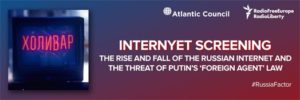 Tuesday, January 14, 2020
Tuesday, January 14, 2020
4:30 p.m. – 6:00 p.m.
Atlantic Council Headquarters
1030 15th St. NW, Washington, DC 20005
On Twitter? Follow @AtlanticCouncil #RussiaFactor







